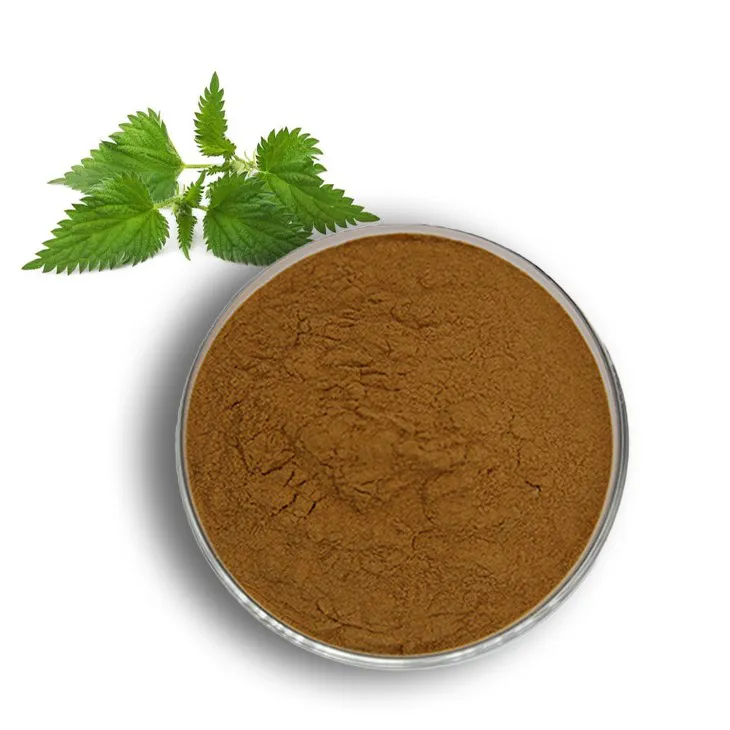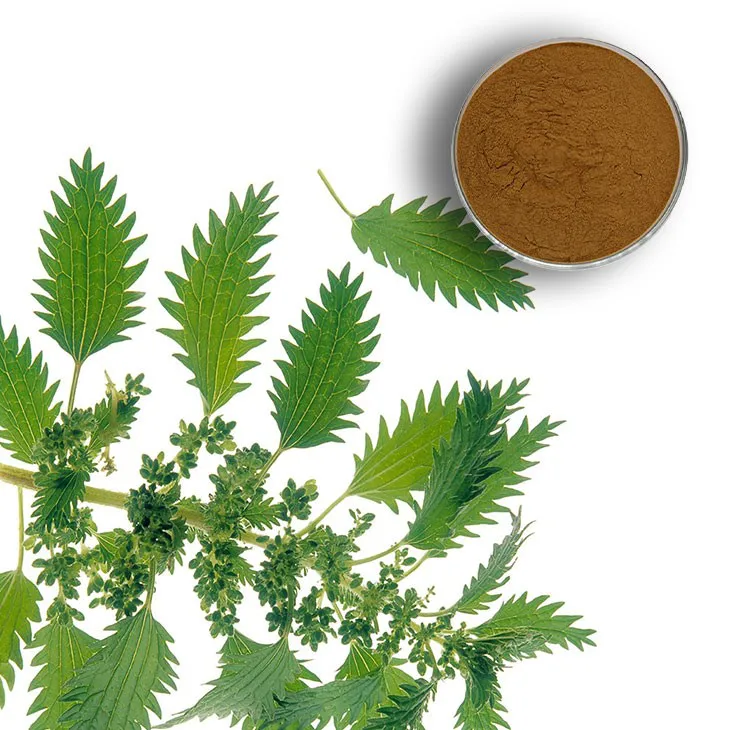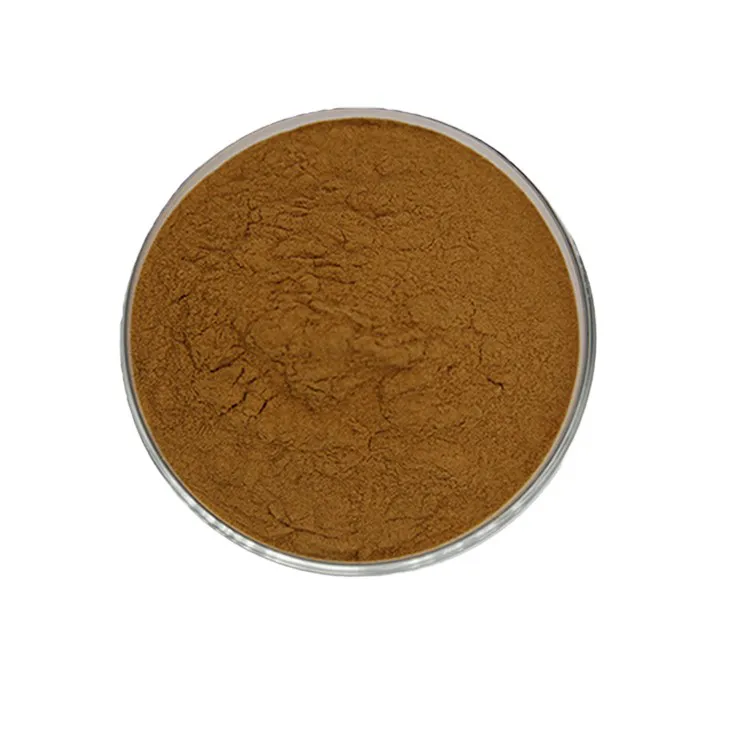- 0086-571-85302990
- sales@greenskybio.com
5 Benefits of Nettle Root Extract + Dosage, Side Effects
2024-11-12

1. Introduction
Nettle Root Extract has been used in traditional medicine for centuries. It is derived from the root of the stinging nettle plant (Urtica dioica). In recent years, it has gained more attention in the field of natural health remedies due to its potential therapeutic properties. This article will explore the five main benefits of Nettle Root Extract, discuss the appropriate dosage, and also cover possible side effects.

2. Benefits of Nettle Root Extract
2.1. Benign Prostatic Hyperplasia (BPH) Relief
One of the most well - known benefits of nettle root extract is its ability to relieve symptoms associated with Benign Prostatic Hyperplasia (BPH). BPH is a common condition in aging men where the prostate gland enlarges. This can lead to problems such as difficulty in urination, frequent urination, and weak urine flow.
Studies have shown that nettle root extract may help reduce the size of the prostate gland or at least slow down its growth. The extract contains compounds that can interact with hormonal pathways in the body. For example, it may inhibit the conversion of testosterone to dihydrotestosterone (DHT), which is involved in prostate growth. By reducing DHT levels, nettle root extract can potentially relieve the pressure on the urethra caused by an enlarged prostate, thus improving urinary symptoms.
2.2. Anti - Inflammatory Properties
Nettle root extract has significant anti - inflammatory properties. Inflammation is a natural response of the body to injury or infection, but chronic inflammation can lead to various health problems, including arthritis, heart disease, and certain cancers.
The extract contains bioactive compounds such as flavonoids, phenolic acids, and fatty acids, which are known for their anti - inflammatory effects. These compounds can modulate the body's immune response and reduce the production of inflammatory mediators such as cytokines and prostaglandins. By reducing inflammation, nettle root extract may help alleviate pain and swelling in conditions like rheumatoid arthritis and osteoarthritis.
2.3. Allergy Relief
Surprisingly, nettle root extract can also be beneficial for allergy sufferers. Allergies occur when the immune system overreacts to harmless substances, such as pollen, dust mites, or certain foods.
Nettle root extract may act as a natural anti - histamine. Histamine is a chemical released during an allergic reaction that causes symptoms like itching, sneezing, and a runny nose. The extract can inhibit the release of histamine from mast cells, thereby reducing the severity of allergic symptoms. Additionally, it may also strengthen the immune system in a way that makes it less likely to overreact to allergens.
2.4. Hair and Skin Health
For hair health, nettle root extract can be quite beneficial. It is rich in nutrients like vitamins A, C, and K, as well as minerals such as iron, calcium, and magnesium. These nutrients are essential for maintaining healthy hair growth.
On the skin, the anti - inflammatory properties of the extract can help with various skin conditions. It may reduce redness, itching, and inflammation associated with eczema, psoriasis, and acne. Nettle root extract can also improve the overall complexion by promoting skin cell renewal and collagen production.
2.5. Blood Sugar Regulation
There is evidence to suggest that nettle root extract may play a role in blood sugar regulation. In some studies, it has been shown to improve insulin sensitivity. Insulin is a hormone that helps cells take up glucose from the bloodstream. When insulin sensitivity is improved, the body can better regulate blood sugar levels.
The exact mechanism by which nettle root extract affects blood sugar is not fully understood, but it may be related to its ability to influence certain metabolic pathways in the body. This could potentially make it a useful supplement for people with type 2 diabetes or those at risk of developing the condition.

3. Dosage of Nettle Root Extract
The appropriate dosage of nettle root extract can vary depending on several factors, including the intended use, the form of the extract (e.g., capsules, tincture, or powder), and individual health factors.
For general health maintenance and mild conditions, a typical dosage might be around 300 - 600 mg per day of a standardized nettle root extract. However, when using nettle root extract for more specific conditions such as BPH, higher dosages may be required. In some cases, dosages up to 1200 - 1500 mg per day have been used, but this should be done under the supervision of a healthcare provider.
If using a tincture, the general recommendation is to start with a few drops (e.g., 5 - 10 drops) and gradually increase the dose as tolerated. When it comes to powder form, it can be mixed with water or other beverages and consumed according to the recommended milligram dosage.

4. Side Effects of Nettle Root Extract
While nettle root extract is generally considered safe for most people when taken in appropriate dosages, there are some potential side effects to be aware of.
- Gastrointestinal Disturbances: Some people may experience mild stomach upset, nausea, or diarrhea. This is more likely to occur with higher dosages or in individuals with sensitive stomachs. To minimize these effects, it is advisable to start with a low dose and gradually increase it.
- Allergic Reactions: Although nettle root extract can be used to relieve allergies, in rare cases, some people may be allergic to the extract itself. Allergic reactions can range from mild skin rashes to more severe symptoms such as difficulty breathing or swelling of the face, lips, or tongue. If any signs of an allergic reaction occur, stop using the extract immediately and seek medical attention.
- Interaction with Medications: Nettle root extract may interact with certain medications. For example, it may enhance the effects of blood - thinning medications like warfarin, increasing the risk of bleeding. It may also interact with medications for diabetes or hypertension. Therefore, if you are taking any medications, it is important to consult your healthcare provider before starting nettle root extract supplementation.

5. Conclusion
Nettle root extract offers a range of potential benefits, from relieving BPH symptoms to improving hair and skin health. However, it is important to use it in the appropriate dosage and be aware of the possible side effects. As with any supplement, it is always a good idea to consult a healthcare provider before starting nettle root extract supplementation, especially if you have underlying health conditions or are taking medications.
FAQ:
What are the five main benefits of nettle root extract?
The five main benefits of nettle root extract often include promoting prostate health, having anti - inflammatory properties, potentially helping with hair growth, acting as a natural diuretic, and it may also contribute to improving the immune system. However, more research is needed to fully confirm and understand these effects.
How should nettle root extract be dosed?
The appropriate dosage of nettle root extract can vary depending on factors such as the form of the extract (e.g., capsule, tincture), the intended use, and individual health conditions. In general, for standardized extracts in capsule form, a common dosage might be around 300 - 600 mg per day. But it is always best to consult a healthcare professional before starting any new supplement regimen.
What are the potential side effects of nettle root extract?
Some potential side effects of nettle root extract may include mild gastrointestinal discomfort, such as nausea or stomach upset in some individuals. Also, there could be a risk of allergic reactions, especially in those who are allergic to plants in the nettle family. Pregnant or breastfeeding women should be particularly cautious, as there is limited research on its safety during these periods.
Can nettle root extract help with hair loss?
There is some evidence to suggest that nettle root extract may be beneficial for hair growth. It is thought to work by blocking the conversion of testosterone to dihydrotestosterone (DHT), which is associated with hair loss in some cases. However, more research is required to establish its effectiveness as a stand - alone treatment for hair loss.
Is nettle root extract safe for long - term use?
While nettle root extract has been used in traditional medicine for a long time, there is still not enough research to firmly conclude its long - term safety. As mentioned, potential side effects like gastrointestinal issues and allergic reactions may occur. Long - term use may also have unforeseen effects on the body's hormonal balance or other physiological functions. So, it is important to monitor for any adverse effects and consult a healthcare provider if using it for an extended period.
Related literature
- The Benefits and Risks of Nettle Root Extract in Herbal Medicine"
- "Nettle Root Extract: Dosage Guidelines and Clinical Evidence"
- "Potential Side Effects of Nettle - Based Supplements: A Review"
- ▶ Hesperidin
- ▶ Citrus Bioflavonoids
- ▶ Plant Extract
- ▶ lycopene
- ▶ Diosmin
- ▶ Grape seed extract
- ▶ Sea buckthorn Juice Powder
- ▶ Fruit Juice Powder
- ▶ Hops Extract
- ▶ Artichoke Extract
- ▶ Mushroom extract
- ▶ Astaxanthin
- ▶ Green Tea Extract
- ▶ Curcumin
- ▶ Horse Chestnut Extract
- ▶ Other Product
- ▶ Boswellia Serrata Extract
- ▶ Resveratrol
- ▶ Marigold Extract
- ▶ Grape Leaf Extract
- ▶ New Product
- ▶ Aminolevulinic acid
- ▶ Cranberry Extract
- ▶ Red Yeast Rice
- ▶ Red Wine Extract
-
Pueraria Lobata Extract
2024-11-12
-
Pomegranate Extract
2024-11-12
-
Troxerutin
2024-11-12
-
Maitake Mushroom Extract
2024-11-12
-
Ginseng Root Extract
2024-11-12
-
Peppermint Extract Powder
2024-11-12
-
Rose Hip Extract
2024-11-12
-
Selenium yeast
2024-11-12
-
Chia Seed Powder
2024-11-12
-
Artichoke Leaf Extract
2024-11-12





















